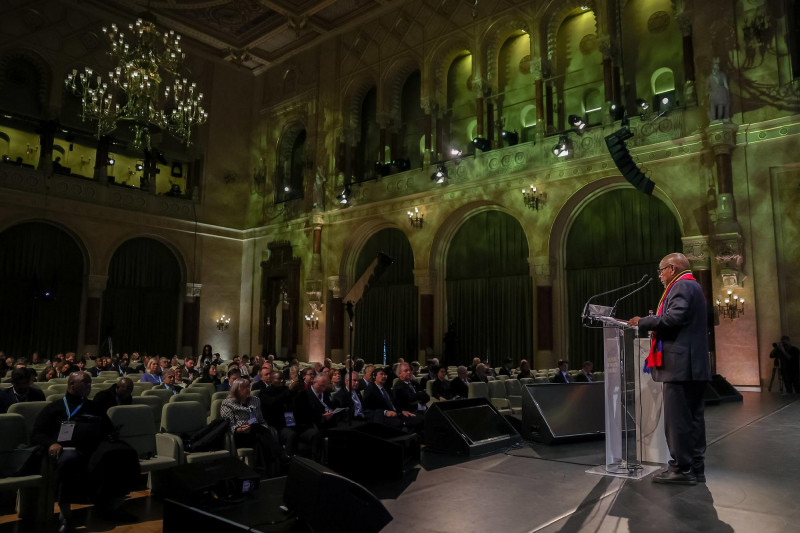World Science Forum Explores Pathways to Advance Sustainable Development Goals
Day three of the World Science Forum on 22 November was opened by former President of Hungary, H.E. János Áder, at Plenary Session III, titled “Taking Forward the Results of the Summit of the Future”. In his opening remarks he highlighted critical challenges and advocated for actionable steps to advance the Sustainable Development Goals (SDGs) while emphasising the limitations of current economic performance metrics. He also called for the inclusion of environmental externalities to be included in economic indicators to truly reflect hidden social costs.
Moderated by Nature Senior Editor Ehsan Masood, the session brought together leading policymakers and scientists to discuss strategies for achieving the SDGs. Emmanuel “Blade” Bonginkosi Nzimande, South Africa’s Minister of Science and Innovation, underscored Africa’s pivotal role as a “continent of the future” and called for urgent action to meet the SDGs to avert severe social and economic repercussions. Jerry Sheehan, Director of the Science, Technology, and Innovation Directorate at the OECD, introduced the Agenda for Transformative STI (Science, Technology and Innovation) Policies and stressed the importance of expanding global collaboration.
Water security emerged as a central theme, with András Szöllősi-Nagy, UNESCO Chair on Water Conflict Management, stating “No water, no SDGs,” and highlighting the need for resilience against climate-driven water crises. Gustavo Merino of UNESCO emphasised gaps in SDG progress, particularly concerning youth demographics and the protection of scientists. International Science Council President Peter Gluckman reiterated the importance of giving scientists a platform, saying, “You don’t have a voice if no one hears you.”

Also on Friday, in Ministerial Roundtable III – “Taking Forward the Results of the Summit of the Future”, the afternoon discussions reflected on the outcomes of the 2024 Summit of the Future in New York (held on 22-23 September 2024), which saw world leaders adopt the Pact for the Future – a roadmap addressing global challenges like climate change, social inequality and sustainable development. Csaba Kőrösi, President of the 77th General Assembly of the United Nations, warned that systemic solutions are required to address the monumental shifts the world is undergoing, while Filip Ivanović, Montenegro’s Deputy Prime Minister for European and Foreign Affairs, highlighted Montenegro’s alignment of national reforms with the SDGs in its bid for European Union accession.
Marcelo Fett, State Secretary of Science, Technology and Innovation of the State of Santa Catarina in Brazil, explained that with the establishment of a State Secretary for International Affairs, Brazil hopes to drive sustainable economic development and innovation through international cooperation. Meanwhile, Vaughan Turekian, Executive Director of the National Academies’ Policy and Global Affairs Division (PGA), announced an historic collaboration with the Chinese Academy of Sciences to address planetary health issues, bridging geopolitical divides to tackle urbanisation, food security and sustainability.
Junguo Liu, President and Professor of North China University of Water Resources and Electric Power, shed light on the worsening impact of climate change on water security, advocating for the Earth Water Future Initiative as a global cooperative network to tackle water-related vulnerabilities. Youth engagement and technology were also central to the dialogue, with Javier García-Martínez, past President of the International Union of Pure and Applied Chemistry, who emphasised the transformative potential of young scientists and interdisciplinary collaboration, supported by institutions like the Global Young Academy.
The session concluded by recognising the role of technology, particularly artificial intelligence, in mitigating and adapting to climate change. Speakers emphasised the need for science to remain central to decision-making processes, showcasing its power to address complex global challenges and offer actionable solutions for a sustainable future.